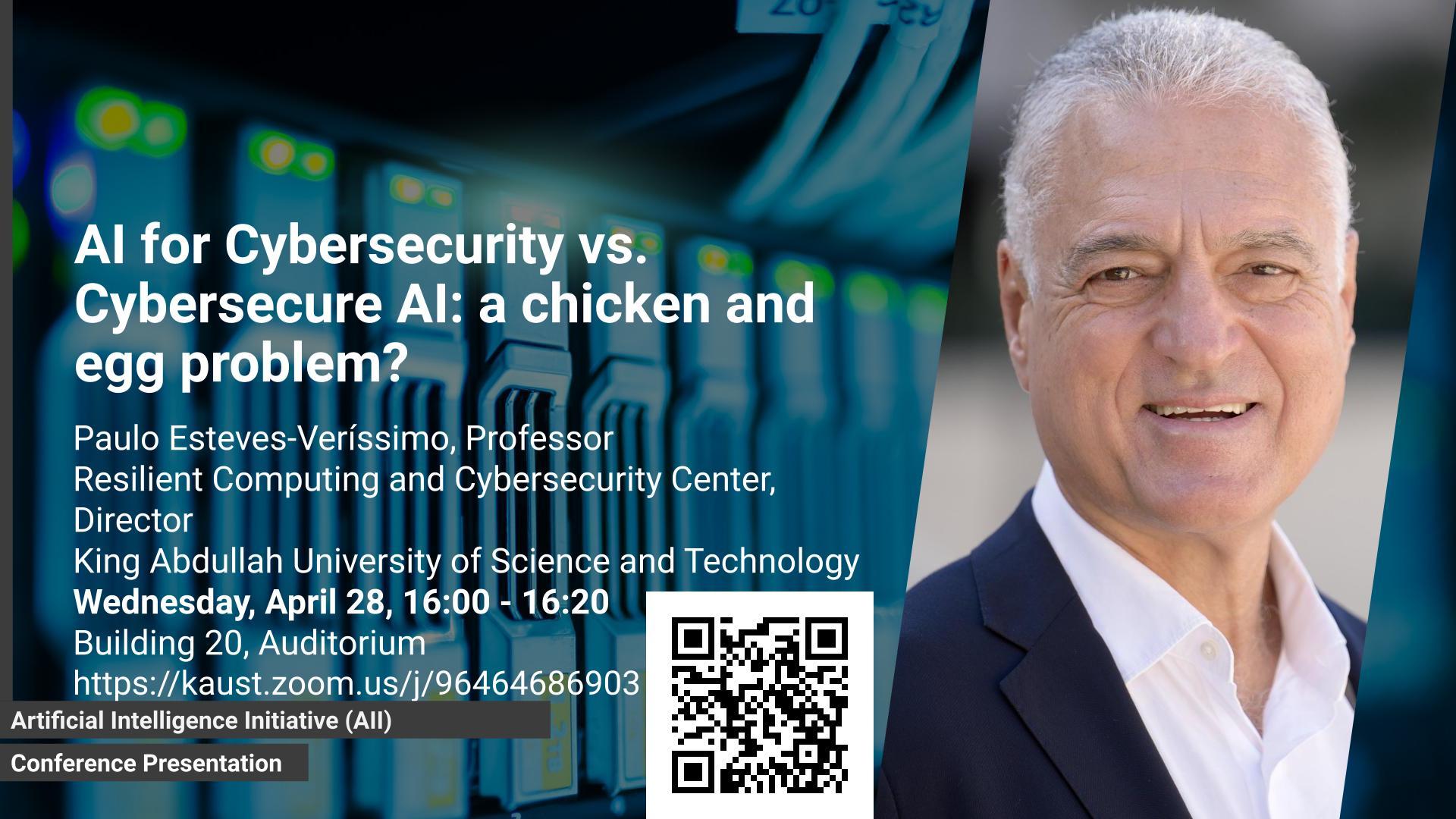Abstract
Artificial Intelligence (AI) is a top subject in the expectations about emerging problem-solving technologies in a number of sectors, given advances in their practicality. Cybersecurity is one such target, and like any hype subject appearing in the homonym Gartner curve, there is a chance that expectations are somewhat inflated. In this talk, I will start by briefly reviewing how AI/ML have been showing promise in a number of security and dependability areas. Then I will play devil’s advocate, challenging the audience to think whether AI/ML mechanisms can help cybersecurity, without being themselves cybersecure. Finally, I raise a bit of the curtain on how to break this chicken and egg dilemma, presenting some solution avenues within the field of resilient computing, a core subject of the KAUST RC3 research center.
Brief Biography
Paulo Esteves-Veríssimo is a professor at KAUST University (KSA) and Director of its Resilient Computing and Cybersecurity Center, and research fellow of SnT at the University of Luxembourg. Previously, he has been a professor and FNR PEARL Chair at UNILU and Head of the CritiX lab. He was a member of the Sci&Tech. Comm. of ECSO EU Cyber Security Org., Chair of IFIP WG 10.4 on Dependable Comp. and F/T, and vice-Chair of the Steer. Comm. of the DSN conference. He is Fellow of IEEE and of ACM, and associate editor of the IEEE TETC journal, author of over 200 peer-refereed publications and co- author of 5 books. He is currently interested in resilient computing, in areas like: SDN-based infrastructures; autonomous vehicles; distributed control systems; digital health and genomics; or blockchain and cryptocurrencies.
